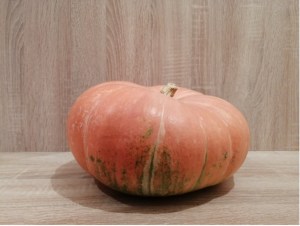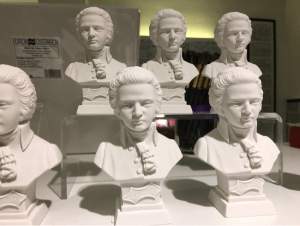We support our Publishers and Content Creators. You can view this story on their website by CLICKING HERE.
The best poems are always going to be about common things. What is uncommon is always the vision of the poet, made visible to us in words that skip along and yet find a way of stopping the reader so that he may examine his own path and think about new ones. Elizabeth Marshall’s “Pathways: Uncommon Poems” has a great many poems that do this.
Pathways: Uncommon Poems by Elizabeth E. Marshall (135 pages, Lulu, 2017)
Should I be reviewing this book? After all, the author, Elizabeth Marshall, is my first cousin. You have encountered her in my essay about my paternal grandmother. Ought we to review the books of family? Ought we review the books of friends? Personally, I don’t see why not. I draw the line at reviewing any of my own work, as literary history tells us a number of authors have slyly done under pseudonyms. My capacity for objectivity with me and myself is low—even lower for “I.”
But family? Cecil Chesterton wrote an entire book critiquing his brother’s thought and writing. He did so anonymously, lest people not take his critique seriously. And writers review their friends’ books all the time. Why not? Love bids us to see our friends and family clearly, to praise them when they deserve it and to criticize in the way we would like to be criticized—with directness as well as gentleness and understanding. Like biographers, I think critics need to have a sympathetic understanding of those whom they criticize. Love does not merely bid us see clearly, in any case; it gives us that capacity if we attend to it.
Of course, Ms. Marshall, whom I love dearly, is not obligated by what I have written above to accept every criticism leveled. The reader should, however, admire how I have rhetorically set her up to do so. (There I go, reviewing myself with sickening self-love! You can see why I have formally vowed not to do it.) Then again, I only decided to review this book because I like it. While I will review the books of friends and family, I will not do so if I am obligated by conscience to pan them.
My conscience is clear on this score. The poems collected herein were written over the course of several decades and have many subjects. I would group them into poems about Christian faith, the seasons, nature (particularly as it connects to the human heart), memories of family and friends, and the travails of life. But such groupings are somewhat artificial, for our perceptions of nature and the seasons are tangled up with our memories, our travails, and the Christian faith that lives out the eternal in the seasons of time.
It is not necessarily the most outwardly profound topics that touch the heart or the imagination. Of particular interest to me are the many mentions of mice and earthworms. I think that these alone might explain the subtitle of her collection: Uncommon Poems. Who, other than the writers of light verse and children’s poetry, dwells on these creatures?
There are many other creatures who make appearances in this volume. Swans, crows, hawks, catbirds, robins, cardinals, sparrows, wrens, crabs, cats, rabbits, squirrels (the quick and the dead), and more dot these pages. There is something old-fashioned (a positive thing) about this poetry that sees God’s world and the creatures he made, sometimes as symbols of things mental or spiritual and sometimes simply as shimmering and glorious things in themselves.
As an example of the former, I enjoy a poem titled “Writer’s Block” in which the “germ of my idea” is carried by a mouse residing “Beneath contorted snakes/that curl within my skull.” I do not enjoy so much but still find compelling the crows in “Implant” whose ghastly caws as they wait for the weak to die represents the news of the disease that killed Ms. Marshall’s mother, my aunt:
Malignant messengers,
their clamor’s aimed at me.
One brazen bird bears
Mother’s cancer in his craw,
his bold intent,
a single strike at my right breast,
incising flesh,
implanting plague,
demanding
one
more
death.
In the wake of her father’s death a few years earlier, a poem titled “Bird Watching” ruminates on the differences between the birds her father (“Uncle John,” I instinctively read) had fed, whose feeders are empty or filled with mildew, and the “birds” her mother cared for:
Her Fenton glass, pastel blue and green,
Needs little care. Featherless,
it bears no lice,
needs washing only twice a year,
and fails to reproduce.
The poem is ultimately a meditation on the mystery that our parents and their marriages are even to grown-up children. The final couplet reveals that this understanding of her mother’s greatest hobby had come as a surprise. Up until that fall, she writes in the last couplet, “I never guessed which birds she loves the best./She cares the most for those who need no nest.”
I’ve often thought the best poems do involve surprises to the speaker of the poem, the reader, or both. “Revisiting the Scene” is about a hike in the woods on May Day, which for Midwesterners doesn’t necessarily mean all is in bloom yet. The green leaves are not yet on the trees, which means “no shade.” But that lack of green and cover also has a comforting aspect. “Indeed, there is no darkness here—/no sinister intent,/no fiendish purpose evident.” I like this rhyming couplet. Though not all the poems have visible rhyme schemes, those that do often make their content memorable (as above).
Ms. Marshall is a serious Christian of Episcopalian persuasion, and it is in the poems that seek and/or find God in Christ that a Catholic reviewer finds both strength and weakness. At their best, Catholics and Episcopalians are two groups of people divided by a common faith. “Resurrection” begins strongly: “The option to arise/is ours./Each morning/proffers yeast.” But I wasn’t sure our choice to get up from the “womb” of the blankets is “becoming our own/bread of life” that we partake in. This may be fussiness on my part about so direct a verbal identification of our biological and spiritual lives.
With other poems I have no such qualms. “A Holy Advent Hush” compares the western streets of an American with the eastern path on which a “donkey bearing Lady/large with child,/journeys with her Joseph/to the village on the hill….” The speaker’s desire to follow them and find the child is poignant.
My heart is bleeding, Lord,
pricked by desert thorn
upon the Rose
that’s bloomed.
Send me to the child
Who’ll heal me
Even as he sleeps.
It is the concreteness of the terms that gives power to the poems that work best. Abstractions can be poetic but also dead ends. “The Heart” talks about its “landscape,” “fertile, rich in nutrients,” in the first stanza. The second commands the reader to “tend” that landscape:
Risk love and affection,
Treasure mutual warmth,
Tender eyes, and attentive ears.
Touch often.
Cherish the body,
challenge the brain,
and cultivate relationships,
remembering Dylan’s charge
not to go gentle
into the dark night.
This is quite lovely except for that one abstract word “relationships.” How about “the vines of friends”? Perhaps “Our other selves”?
There are few such false notes, however. Almost all these poems stick wholeheartedly to the words of flesh that befit poems in which the Word Made Flesh is approached or haunting the lines. One of my favorites here is “Train Trip,” which tells of an Amtrak journey, realistically depicted in the lines “We’re an hour late,/yet time slips by/like water through fine sand.” It is morning, and Cleveland gives way to the Three Rivers of Pittsburgh, the Appalachians, and the flatness of central Pennsylvania. The ending is human and Christian.
The sky is grey on white,
the white so pure
it hurts my eyes,
and where it thins,
blinding blue.
We’re riding toward
the risen sun,
shining on reunion
with dear friends.
The best poems are always going to be about common things. What is uncommon is always the vision of the poet, made visible to us in words that skip along and yet find a way of stopping the reader so that he may examine his own path and think about new ones. Pathways: Uncommon Poems has a great many poems that do this.
The Imaginative Conservative applies the principle of appreciation to the discussion of culture and politics—we approach dialogue with magnanimity rather than with mere civility. Will you help us remain a refreshing oasis in the increasingly contentious arena of modern discourse? Please consider donating now.
The featured image is courtesy of Pixabay.

 Conservative
Conservative  Search
Search Trending
Trending Current News
Current News 






